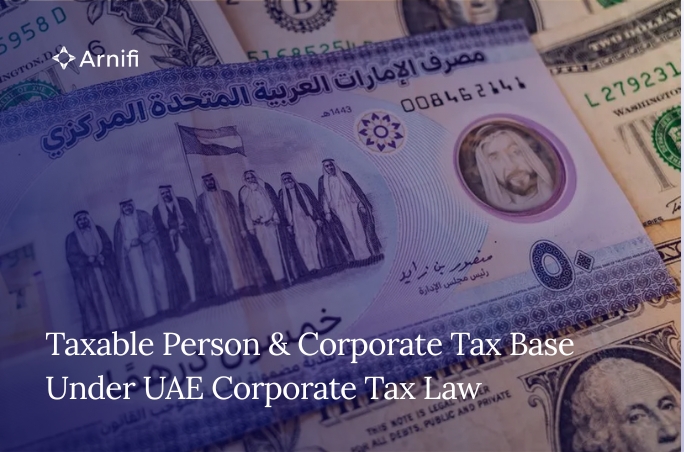How to Register With the Federal Tax Authority UAE: Steps, Requirements, and Timelines
by Rifa S Laskar Nov 24, 2025  7 MIN READ
7 MIN READ

The Federal Tax Authority UAE is the federal body that collects and enforces the country’s national taxes. It was created in 2016 under Federal Decree-Law No. 13 of 2016 as part of wider fiscal reform, and now oversees VAT, corporate tax and excise through its official mandate and structure and digital EmaraTax platform.
This guide sets out the full procedure to register with the Federal Tax Authority in UAE so that returns and payments stay aligned with the law.
Table of contents
- How Does Federal Tax Authority In UAE Work
- How to Register with the Federal Tax Authority UAE?
- Main Taxes Administered By The FTA
- How the FTA Uses EmaraTax and Online Services
- Who Must Register With The Tax Federal Authority UAE
- Federal Tax Authority UAE VAT Registration In Practice
- How FTA Audits, Assessments and Penalties Work
- Simple Habits That Help Firms Stay Onside
- Final Advice
- FAQs
How Does Federal Tax Authority In UAE Work
The federal tax authority in UAE operates at federal level, not emirate level. Its VAT and related tax rules apply in the same way across all seven emirates, as explained in the AE government guidance on VAT.
It was set up under Federal Decree-Law No. 13 of 2016, and later named as the main tax authority in the UAE VAT law (Federal Decree-Law No. 8 of 2017) and the corporate tax law (Federal Decree-Law No. 47 of 2022), as confirmed again in the FTA’s 2023–2026 strategy statement.
How to Register with the Federal Tax Authority UAE?
- Create an account or log in on the EmaraTax digital tax services platform with your email and phone number.
- Select or create a taxable person profile in your account.
- Complete the Corporate Tax registration form by filling in business details such as trade license number, entity type (Mainland, Free Zone, etc.), financial year, business activities, and contact information.
- Upload required documents including trade license copy, Emirates ID and passport copies of authorized signatories, financial statements, proof of business address, and Power of Attorney (if applicable).
- Review all entered details carefully and submit the registration application.
- Await approval from the FTA. Once approved, receive a Corporate Tax Registration Certificate and a Tax Registration Number (TRN).
Key Requirements:
- Valid and active UAE business trade license.
- Recent financial statements covering income, expenses, and profit details.
- Authorized signatory details with Emirates ID and passport copies.
- Proof of business address.
- Power of Attorney, if applicable.
- Accurate and complete business data in the registration form.
Timelines:
The Federal Tax Authority (FTA) UAE specifies corporate tax registration timelines based on entity type and establishment date.
The entire registration process typically takes around 30 minutes to complete on the EmaraTax platform, with digital submission and tracking available online.
Main Taxes Administered By The FTA
The FTA handles VAT on most goods and services in the UAE at a standard rate of 5 percent, with some supplies exempt or zero-rated as set out in its general VAT information. It also administers corporate tax under Decree-Law No. 47 of 2022 at 9 percent on taxable income above the Cabinet-set threshold, as summarised in the corporate tax overview.
Excise tax on products such as tobacco and certain sweetened drinks, along with frameworks like Economic Substance Regulations and country-by-country reporting, also sit within the same federal tax system under FTA supervision.
How the FTA Uses EmaraTax and Online Services
The FTA delivers most services through its EmaraTax portal. A single login covers VAT, excise and corporate tax registration, return filing and payments. EmaraTax also offers tools such as VAT calculators, TRN checks and dashboards that show pending returns and payments.
FTA guides explain how to submit and pay returns in EmaraTax and warn that delays in payment can trigger administrative penalties, as set out on the submit and pay tax return page.
Who Must Register With The Tax Federal Authority UAE
The tax federal authority UAE requires VAT registration when taxable supplies and imports exceed AED 375,000 in a 12-month period, with voluntary registration available above AED 187,500 to support input tax recovery, as explained in the UAE VAT overview.
Corporate tax registration is compulsory for juridical persons and certain natural persons that meet the tests in Federal Decree-Law No. 47 of 2022. FTA decision in 2024 sets detailed timelines by licence issue date and financial year within the framework described on the FTA corporate tax law page.
Recent press reports put corporate tax registrations above 640,000, and non-registration when required can lead to administrative penalties of up to AED 10,000 and higher audit risk later.
Federal Tax Authority UAE VAT Registration In Practice
The federal tax authority UAE VAT registration process is fully online through EmaraTax. First create an EmaraTax account, set up a taxable person profile, then fill in business details such as trade licence information, contact data and expected or actual turnover against VAT thresholds.
Once the application is checked and approved, the system issues a Tax Registration Number that’s usable on tax invoices and VAT returns, as outlined in the FTA VAT registration guide.
How FTA Audits, Assessments and Penalties Work
The Tax Procedures Law gives the FTA power to ask for records and explanations. It has authority to carry out field audits on registered taxpayers, a scope set out in Federal Decree-Law No. 28 of 2022 on Tax Procedures.
If returns are missing or inaccurate, the authority can raise its own assessments or add tax it believes is due. It may even apply administrative penalties using the schedules and relief rules explained in the FTA penalties guidance.
FTA wants higher voluntary compliance, so it combines these enforcement tools with education campaigns and clearer guidance in its official strategy document.
Simple Habits That Help Firms Stay Onside
- Clear mapping of each company to the correct tax registrations keeps obligations visible and avoids accidental gaps.
- Single internal calendars for VAT and corporate tax deadlines reduce missed filings and interest.
- Good invoice discipline and reconciled ledgers allow finance teams to respond quickly when the FTA asks for supporting evidence.
- Periodic internal reviews against FTA guides and public clarifications help catch issues before they grow into assessments.
Final Advice
The FTA has moved federal tax in the UAE into a structured, portal-driven system that still expects strong internal records and clear decision trails, as shown in its EmaraTax platform.
Businesses that understand the authority’s role and register correctly usually find tax reviews more predictable. Keeping tidy evidence also makes reviews less disruptive, in line with the FTA Strategy 2023–2026. Arnifi helps firms build those records and processes so FTA checks feel structured instead of stressful.
FAQs
What is the Federal Tax Authority UAE responsible for?
The Federal Tax Authority UAE runs the federal tax system. It registers taxpayers and administers VAT and excise tax and corporate tax across all emirates.
Which businesses must register for VAT with the FTA?
A business must register for VAT when taxable supplies plus imports pass AED 375,000 in a twelve month period. Voluntary registration starts at AED 187,500 so firms can claim input tax earlier.
When did corporate tax start under the FTA system?
Corporate tax under the FTA applies to financial years that start on or after 1 June 2023. The rule comes through Federal Decree Law No. 47 of 2022 and related cabinet decisions.
How are tax returns submitted to the FTA?
Businesses submit VAT and excise tax and corporate tax returns online through the EmaraTax portal. The same account supports payments and refund requests and profile updates for each taxable person.
What happens when a business ignores FTA deadlines?
Missing FTA registration or filing deadlines can trigger fixed penalties and daily amounts under the Tax Procedures Law. Late payment also adds interest and may prompt extra review or audits by the authority.
Top UAE Packages

Related Articles
Top UAE Packages



